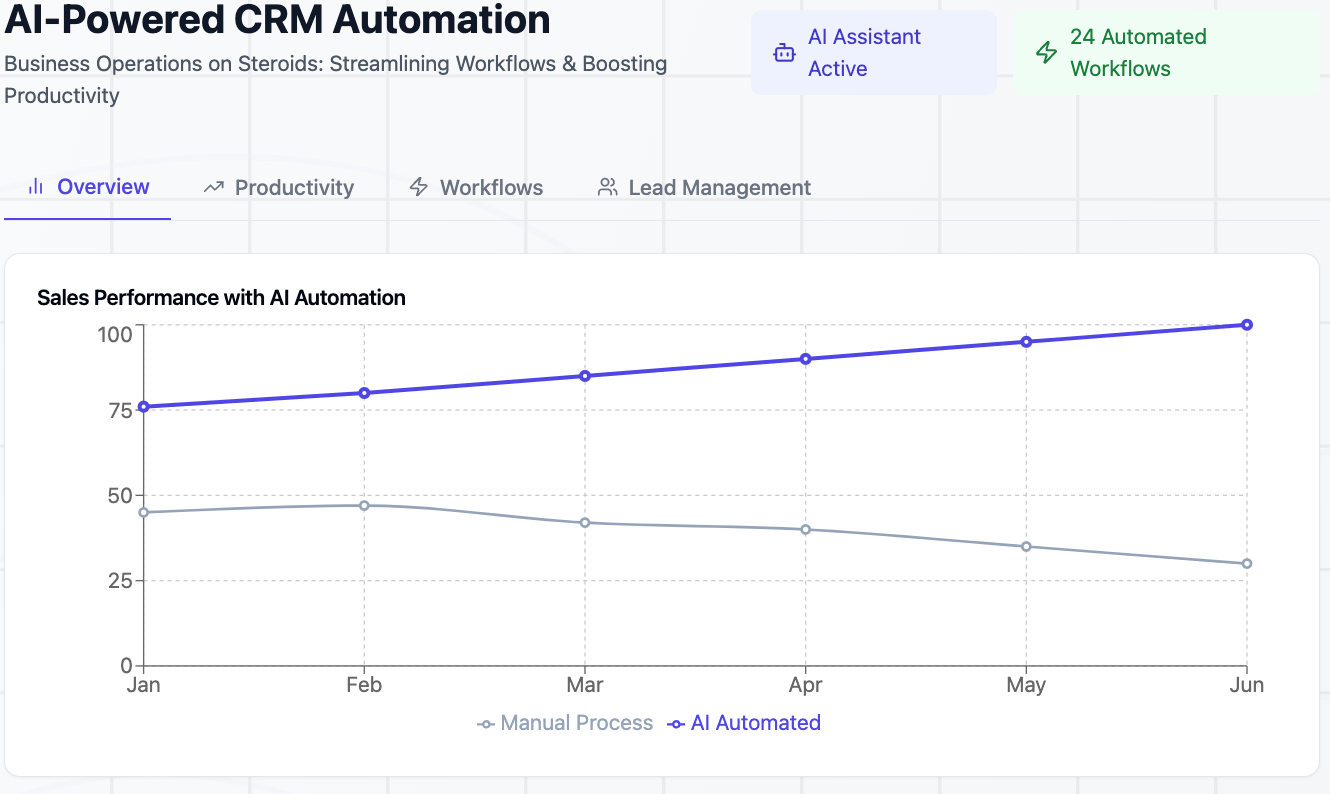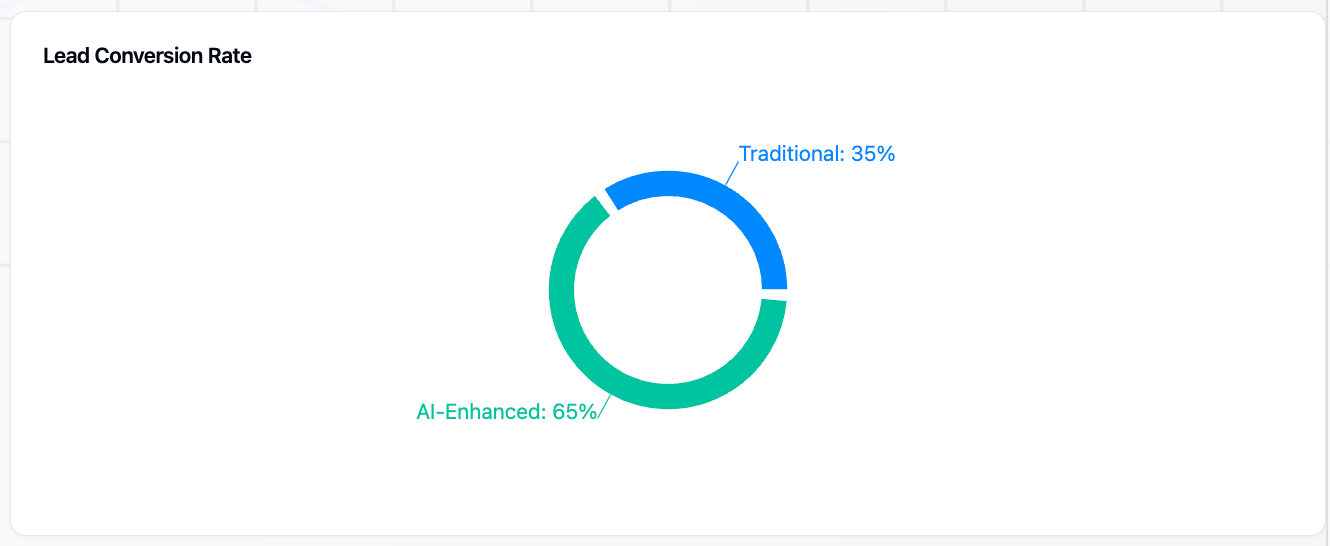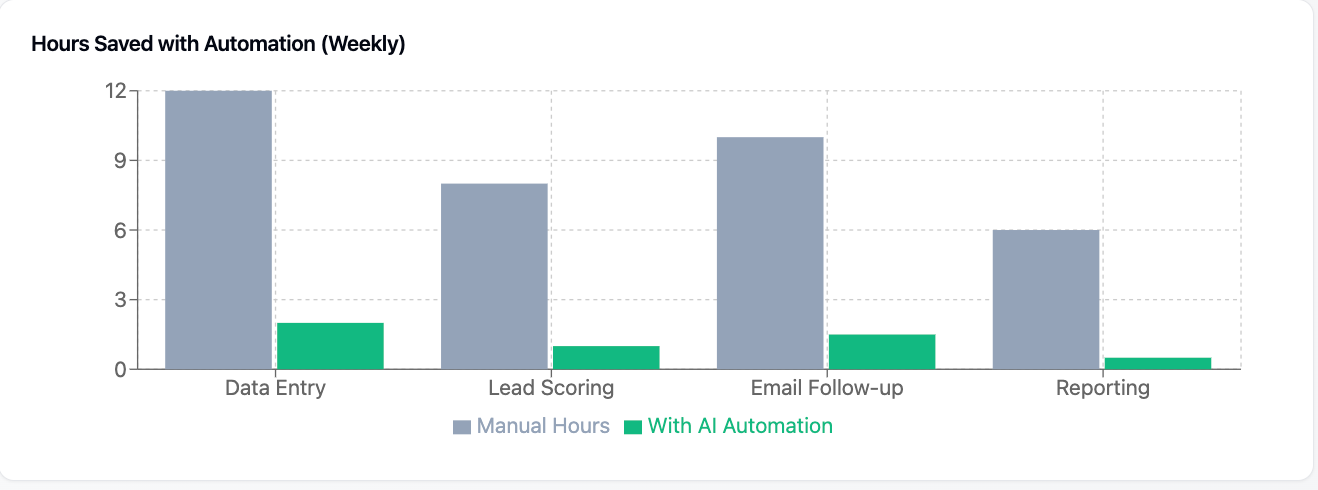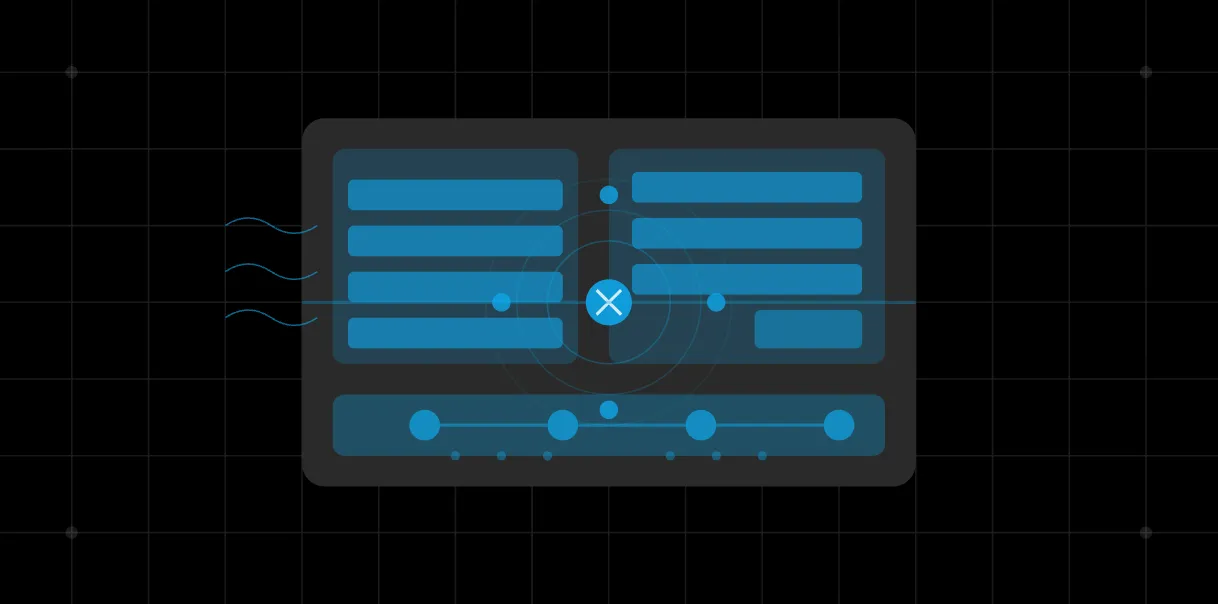Best Strategies to Automate CRM Updates with AI for Smoother Workflows
Automate CRM Updates With AI For Smoother Workflows: Business Operations on Steroids
In today’s fast-paced business world, companies are always looking to streamline operations and enhance customer relationships. One of the biggest solutions has emerged in the form of AI-powered CRM. By leveraging AI tools to enhance workflow automation and project management efficiency, businesses can automate mundane tasks, improve communication, and analyze unstructured data. These advanced systems are changing how businesses manage customer relationships. Let’s see how AI automation in CRM is smoothening workflows and delivering tangible benefits to businesses of all sizes.
Introduction
In today’s fast-paced business environment, companies are constantly seeking ways to improve operational efficiency, reduce manual errors, and enhance customer satisfaction. One effective way to achieve these goals is by implementing CRM workflow automation. By automating repetitive tasks and streamlining business processes, organizations can free up valuable time and resources to focus on strategic activities that drive growth and innovation. This shift not only boosts productivity but also ensures that businesses can respond swiftly to market changes and customer needs, maintaining a competitive edge.

What is CRM Workflow Automation?
CRM workflow automation refers to the use of software tools to automate repetitive and time-consuming tasks within a Customer Relationship Management (CRM) system. The primary goal of CRM workflow automation is to reduce manual intervention and allow teams to focus on more strategic tasks. By automating workflows, businesses can improve efficiency, accuracy, and customer satisfaction, ultimately leading to increased revenue and competitiveness. This automation transforms how businesses operate, making processes more streamlined and reducing the likelihood of human error.
Benefits of AI in CRM
Productivity
Perhaps the most immediate benefit of AI powered CRM automation is the massive productivity boost. By taking over routine tasks like data entry, follow ups, and email responses, AI frees up your sales and support teams to focus on what really matters – building relationships with customers. This shift from administrative burden to relationship building can impact your team’s effectiveness and job satisfaction.
Customer Data Accuracy
Manual data entry can lead to costly mistakes and lost opportunities due to human error. AI automation ensures customer information is accurate and up-to-date by eliminating these errors. The result is a more reliable database to make decisions and customer engagement strategies.

Real-time Insights and Recommendations
One of the key benefits of CRM workflow automation is the ability to provide real-time insights and recommendations. By analyzing customer data and behavior, businesses can gain a deeper understanding of their customers’ needs and preferences. This information can be used to personalize marketing campaigns, improve customer support, and enhance overall customer experience. With real-time insights and recommendations, businesses can make data-driven decisions and stay ahead of the competition. This proactive approach ensures that customer interactions are always relevant and timely, fostering stronger relationships and loyalty.

Real time Insights and Recommendations
Ability to process huge amount of customer data in real time gives AI powered CRM systems an edge. Automated processes within these systems can analyze customer interactions and provide real-time insights. These systems can analyze interactions, identify patterns and provide instant recommendations for next steps so your team can respond to changing customer needs and market conditions.
Huge Cost Savings
By automating processes and optimizing resource allocation AI powered CRM systems reduce operational costs. Implementing workflow automation software further enhances this optimization by streamlining tasks and reducing manual intervention. The efficiency gains translate to tangible savings that can be reinvested in other areas of your business, creating a virtuous cycle of improvement and growth.
Consistent Customer Engagement
Customer expectations for response times are rising. Implementing an automated workflow with AI powered chatbots and natural language processing capabilities ensures customer inquiries get instant attention 24/7, no matter the time zone. This consistent engagement builds customer trust and satisfaction.
Types of Automation
There are several types of automation that can be implemented in a CRM system, including:
-
Lead Scoring: Prioritize high-value opportunities by analyzing customer data and behavior to assign scores to leads.
-
Sales Process Automation: Automate sales tasks and workflows to streamline the sales process and improve efficiency.
-
Customer Service Automation: Automate customer support and issue resolution to provide timely and consistent service.
-
Marketing Automation: Automate marketing campaigns and lead generation to target the right audience with personalized messages.
-
Document Automation: Automate document creation and management to reduce manual processes and improve accuracy.
-
Reporting and Analytics Automation: Automate reporting and analytics tasks to gain insights and make informed decisions.
These types of automation not only save time but also ensure that each process is carried out with precision and consistency, enhancing overall operational efficiency.
Lead Scoring: Prioritize High-Value Opportunities
Lead scoring is a type of automation that allows businesses to prioritize high-value opportunities. By analyzing customer data and behavior, businesses can assign a score to each lead based on their likelihood of conversion. This score can be used to prioritize leads and focus on the most valuable opportunities. With lead scoring, businesses can improve sales productivity, reduce manual errors, and increase revenue. This targeted approach ensures that sales teams are focusing their efforts on leads that are most likely to convert, maximizing their efficiency and effectiveness.
By implementing CRM workflow automation, businesses can streamline their operations, improve efficiency, and enhance customer satisfaction. With the right tools and strategies, businesses can automate repetitive tasks, provide real-time insights and recommendations, and prioritize high-value opportunities. This comprehensive approach to automation not only boosts productivity but also drives growth and innovation, positioning businesses for long-term success.
Practical Applications for Business Operations
Automated Data Entry and Management to Automate Repetitive Tasks
AI technology has changed how data enters your CRM:
-
AI-driven solutions streamline sales processes by automating data entry, enhancing efficiency and accuracy.
-
Intelligent systems can now transcribe and analyze sales calls, automatically populating your CRM with comprehensive summaries and action items
-
OCR technology enables scanning of business cards and documents, instantly populating contact information without manual input
Hyper Personalized Marketing
Customers expect personalization and AI delivers:
-
Advanced analysis of customer data enables creation of highly targeted marketing campaigns based on individual preferences and behaviors
-
Workflow automations in CRM platforms further enhance these campaigns by automating sales processes and email campaigns, making them more efficient and effective
-
These personalized campaigns result in better campaigns and higher conversion rates
Intelligent Conversational Support
Customer support has been revolutionized by AI powered chatbots:
-
These systems provide instant support for common questions and troubleshooting. Additionally, they automate workflows to enhance efficiency and collaboration, streamlining complex processes and reducing manual input.
-
By analyzing past interactions they deliver context aware responses to enhance the support experience
Predictive Analytics for Planning
Looking ahead is key to business success:
-
AI analyzes historical data to forecast future sales trends and identify opportunities or risks
-
This foresight enables better decision making and resource allocation
Workflow Creation
Beyond managing existing processes AI helps create new efficiency:
-
AI enables CRM customization by helping create new automated workflows
-
These custom workflows further streamline business processes and reduce operational waste
The Future of Work: Human-AI Collaboration with AI Tools
The most successful implementations of AI in CRM systems don’t replace human workers—they arm them. By taking over mundane tasks and providing intelligent insights AI enables your team to work smarter not harder. This collaboration between human creativity and AI efficiency is the future of work in customer relationship management.
As businesses navigate digital transformation those that leverages AI powered CRM automation will gain a huge competitive advantage. The result is not just smoother workflows but stronger customer relationships, more sales and more efficient operations across the board.
The question for forward thinking businesses is no longer if they should implement AI in their CRM systems but how fast they can do so to stay competitive in an automated business world.
